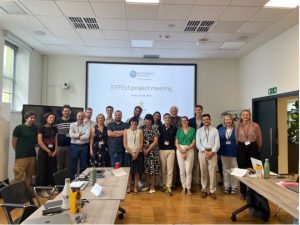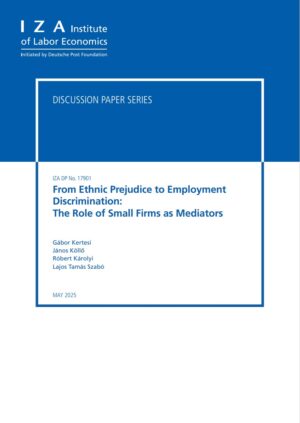Seminars

KTI Seminar: Tim Pawlowski
2025.12.04.
The presentation will take place in a hybrid format via zoom interface or in person in the room K.0.11-12 on 04.12.2025, from 13.00. Előadó: Tim Pawlowski Cím: BIO: Tim studied Economics at U Cologne and Sports Science at the German Sport U where he also earned his PhD before joining U Tübingen as a Full […]

KTI Seminar: Gregory Clark - Immobile Britannia
2025.10.16.
The presentation will take place in a hybrid format via zoom interface or in person in the seminar room T.4.23. on 16.10.2025, from 13.00. Speaker: Gregory Clark (by Rita, Attila) Title: Immobile Britannia:Why it has been impossible to increase social mobility rates in England 1754-2025, and why that is good news Bio: Clark is Danish […]

11th International Workshop on Efficiency in Education, Health and other Public Services
2025.09.18.
11th International Workshop on Efficiency in Education, Health and other Public Services Organised jointly with the 7th workshop on Experiments in education and labour market research. (See call here) Workshop dates: September 18-19, 2025 Workshop venue: H-1097 Budapest, Tóth Kálmán str. 4. Hungary (MTA HTK Building) See program here

KTI Seminar: Christopher Stapenhurst – Randomized Deferred Acceptance and Possibility Based Strategy Proofness
2025.05.29.
The presentation will take place in a hybrid format via zoom interface or in person in the room K.0.11-12 on 29.05.2025, from 13.00. Speaker: Christopher Stapenhurst (BME) Title: Randomized Deferred Acceptance and Possibility Based Strategy Proofness (joint work with József Pínter and Regina Stangl) Abstract: The deferred acceptance (DA) algorithm is known to be strategy-proof […]

KTI Seminar: Héctor Hermida-Rivera - Self-Equivalent Voting Rules
2025.05.22.
The presentation will take place in a hybrid format via zoom interface or in person in the seminar room T.4.23 on 22.05.2025, from 13.00. Speaker: Héctor Hermida-Rivera Title: Self-Equivalent Voting Rules Abstract: In this paper, I introduce a novel stability axiom for stochastic voting rules—called self-equivalence—by which a society considering whether to replace its voting […]






